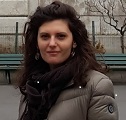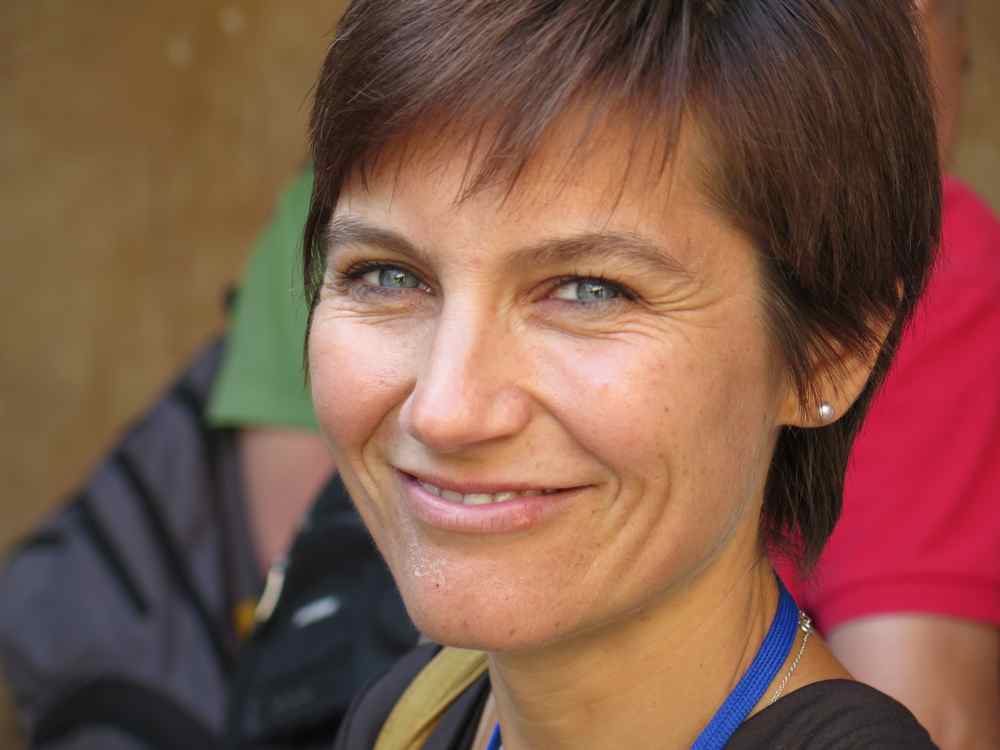Studying at the University of Verona
Here you can find information on the organisational aspects of the Programme, lecture timetables, learning activities and useful contact details for your time at the University, from enrolment to graduation.
Academic calendar
The academic calendar shows the deadlines and scheduled events that are relevant to students, teaching and technical-administrative staff of the University. Public holidays and University closures are also indicated. The academic year normally begins on 1 October each year and ends on 30 September of the following year.
Course calendar
The Academic Calendar sets out the degree programme lecture and exam timetables, as well as the relevant university closure dates..
| Period | From | To |
|---|---|---|
| I semestre | Oct 1, 2018 | Jan 31, 2019 |
| II semestre | Mar 4, 2019 | Jun 14, 2019 |
| Session | From | To |
|---|---|---|
| Sessione invernale d'esame | Feb 1, 2019 | Feb 28, 2019 |
| Sessione estiva d'esame | Jun 17, 2019 | Jul 31, 2019 |
| Sessione autunnale d'esame | Sep 2, 2019 | Sep 30, 2019 |
| Session | From | To |
|---|---|---|
| Sessione di laurea estiva | Jul 22, 2019 | Jul 22, 2019 |
| Sessione di laurea autunnale | Oct 15, 2019 | Oct 15, 2019 |
| Sessione di laurea autunnale straordinaria | Nov 21, 2019 | Nov 21, 2019 |
| Sessione di laurea invernale | Mar 19, 2020 | Mar 19, 2020 |
| Period | From | To |
|---|---|---|
| Sospensione attività didattica | Nov 2, 2018 | Nov 3, 2018 |
| Vacanze di Natale | Dec 24, 2018 | Jan 6, 2019 |
| Vacanze di Pasqua | Apr 19, 2019 | Apr 28, 2019 |
| Vacanze estive | Aug 5, 2019 | Aug 18, 2019 |
Exam calendar
Exam dates and rounds are managed by the relevant Science and Engineering Teaching and Student Services Unit.
To view all the exam sessions available, please use the Exam dashboard on ESSE3.
If you forgot your login details or have problems logging in, please contact the relevant IT HelpDesk, or check the login details recovery web page.
Should you have any doubts or questions, please check the Enrollment FAQs
Academic staff
Aielli Gian Piero
 alberto.benvegnu@univr.it
alberto.benvegnu@univr.it
 rossana.capuani@univr.it
rossana.capuani@univr.it
 vittoria.cozza@univr.it
vittoria.cozza@univr.it
 tamara.fioroni@univr.it
tamara.fioroni@univr.it
Imperio Michele
 davide.mattiolo@univr.it
davide.mattiolo@univr.it

Mazzuoccolo Giuseppe
 giuseppe.mazzuoccolo@univr.it
giuseppe.mazzuoccolo@univr.it
 +39 0458027838
+39 0458027838
 chiara.nardon@univr.it
chiara.nardon@univr.it
 elia.vincenzi@univr.it
elia.vincenzi@univr.it
 simone.zuccher@univr.it
simone.zuccher@univr.it
Study Plan
The Study Plan includes all modules, teaching and learning activities that each student will need to undertake during their time at the University.
Please select your Study Plan based on your enrollment year.
1° Year
| Modules | Credits | TAF | SSD |
|---|
2° Year activated in the A.Y. 2019/2020
| Modules | Credits | TAF | SSD |
|---|
3° Year activated in the A.Y. 2020/2021
| Modules | Credits | TAF | SSD |
|---|
| Modules | Credits | TAF | SSD |
|---|
| Modules | Credits | TAF | SSD |
|---|
| Modules | Credits | TAF | SSD |
|---|
| Modules | Credits | TAF | SSD |
|---|
Legend | Type of training activity (TTA)
TAF (Type of Educational Activity) All courses and activities are classified into different types of educational activities, indicated by a letter.
Financial mathematics (2020/2021)
Teaching code
4S00393
Academic staff
Coordinator
Credits
12
Language
Italian
Scientific Disciplinary Sector (SSD)
SECS-S/06 - MATHEMATICAL METHODS OF ECONOMICS, FINANCE AND ACTUARIAL SCIENCES
Period
I semestre dal Oct 1, 2020 al Jan 29, 2021.
Learning outcomes
This course presents the basic models for the analysis and evaluation of financial operations, both under conditions of certainty and randomness. The main goal of the course is to equip the student with the ability to model and solve some basic mathematical problems, commonly encountered in the financial practice.
Program
The entire course will be available online. In addition, a number of the lessons (see the course
schedule) will be held in-class.
Part 1: classical financial mathematics - Main Reference: Scandolo
1) Basic financial operations, simple interest, interest in advance, compounding of interest, exponential regime.
2) Market rates. Some sketch of the classical theory with some warnings regarding the multiple curve phenomenon.
3) Annuities and amortization: non-elementary investment and financing, annuities with constant rates, annuities with installments following a geometric progression, amortization, common amortization clauses, amortization with viariable interest rate.
4) Choice without uncertainty: return for elementary and generic investment, choice criteria for investment and financing operations.
5) Bonds: classification, zero coupon bonds, fixed coupon bonds.
6) Term structure: yield curve, complete and incomplete markets.
7) Immunization: Maculay’s duration and convexity, immunized portfolios.
Part 2: mathematical finance in the presence of uncertainty - Main references: Föllmer Schied and Pascucci Runggaldier.
8) Probability theory refresher: probability spaces, independence, Radon-Nikodym theorem, expectation, conditional expectation, martingales, convergence of random variables.
9) Preferences and risk aversion: expected utility criterion (St. Petersburgh paradox), von Neumann Morgenstern axioms, stochastic dominance, mean variance criterion and static portfolio optimization, CAPM.
10) Arbitrage theory in one period: foundations and fundamental theorem of asset pricing, contingnt claimds, market completeness.
11) Arbitrage theory in multiperiod models: fundamental on multiperiod models, absence of arbitrage, European contingent claims, binomial model (Cox-Ross Rubinstein).
12) American contingent claims: foundataions, valuation and hedging, arbitrage free prices and replicability in general markets.
| Author | Title | Publishing house | Year | ISBN | Notes |
|---|---|---|---|---|---|
| Pascucci, A. Runggaldier, W. J. | Finanza matematica. Teoria e problemi per modelli multiperiodali (Edizione 1) | Springer | 2009 | 978-8-847-01441-1 | |
| Scandolo Giacomo | Matematica Finanziaria | Amon | 2013 | ||
| Scandolo Giacomo | Matematica finanziaria - Esercizi | Amon | 2013 | ||
| Föllmer, H. Schied, A. | Stochastic Finance: An Introduction in Discrete Time (Edizione 4) | De Gruyter | 2016 | 978-3-110-46344-6 |
Examination Methods
Two-hour written exam. The exam consists of practical and theoretical exercises, including the proof of certain claims. The exam aims to verify the student's ability to identify the correct resolution, knowledge of basic financial laws and sophisticated assessment models, and the ability to apply acquired knowledge to concrete cases in new and variable contexts. The exam aims also to assess the level of understanding of the theoretical aspects of the lecture.
The assessment methods could change according to the academic rules.
Type D and Type F activities
Modules not yet included
Career prospects
Module/Programme news
News for students
There you will find information, resources and services useful during your time at the University (Student’s exam record, your study plan on ESSE3, Distance Learning courses, university email account, office forms, administrative procedures, etc.). You can log into MyUnivr with your GIA login details: only in this way will you be able to receive notification of all the notices from your teachers and your secretariat via email and soon also via the Univr app.
Graduation
Documents
| Title | Info File |
|---|---|
|
|
pdf, it, 31 KB, 29/07/21 |
|
|
pdf, it, 31 KB, 29/07/21 |
|
|
pdf, it, 171 KB, 20/03/24 |
List of theses and work experience proposals
| theses proposals | Research area |
|---|---|
| Formule di rappresentazione per gradienti generalizzati | Mathematics - Analysis |
| Formule di rappresentazione per gradienti generalizzati | Mathematics - Mathematics |
| Proposte Tesi A. Gnoatto | Various topics |
| Mathematics Bachelor and Master thesis titles | Various topics |
| THESIS_1: Sensors and Actuators for Applications in Micro-Robotics and Robotic Surgery | Various topics |
| THESIS_2: Force Feedback and Haptics in the Da Vinci Robot: study, analysis, and future perspectives | Various topics |
| THESIS_3: Cable-Driven Systems in the Da Vinci Robotic Tools: study, analysis and optimization | Various topics |
| Stage | Research area |
|---|---|
| Internship proposals for students in mathematics | Various topics |
Attendance
As stated in the Teaching Regulations for the A.Y. 2022/2023, except for specific practical or lab activities, attendance is not mandatory. Regarding these activities, please see the web page of each module for information on the number of hours that must be attended on-site.
Career management
Student login and resources
Erasmus+ and other experiences abroad
Commissione tutor
La commissione ha il compito di guidare le studentesse e gli studenti durante l'intero percorso di studi, di orientarli nella scelta dei percorsi formativi, di renderli attivamente partecipi del processo formativo e di contribuire al superamento di eventuali difficoltà individuali.
E' composta dai proff. Sisto Baldo, Marco Caliari, Francesca Mantese, Giandomenico Orlandi e Nicola Sansonetto






































